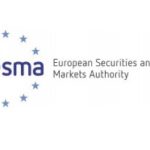Environmental financial accounting deals with accounting for and reporting on environmental transactions and events that affect, or will likely affect, the financial position of the business. One of the challenges is to ensure that 1) environmental costs and liabilities are accounted for by following relevant accounting standards or , in their absence, generally accepted accounting practices, and 2) meaningful disclosure of the environmental performance of the business is provided. A further challenge is to ensure that appropriate management accounting procedures are, where necessary, developed, and used, for instance, to cost out pollution controls, to compare alternative materials that can be used in manufacturing, and to investigate recycling alternatives.
The objective of the manual is to inform and give guidance on environmental accounting issues, and identify best practices that may be considered by national standard setters in the development of their own accounting standards, rules or regulations. The workshop should raise their awareness on most of the issues that have been raised in corporate accounting and reporting of environmental impacts.
The manual is primarily based on work that has been, undertaken by the UNCTAD-ISAR group, the European Accounting Advisory Forum, and accounting organizations and standard-setting bodies in Canada, the United Kingdom and the United States. A survey of other countries was undertaken, and responses were received from Brazil, China, the Czech Republic, Germany, Korea, Mauritius, the Netherlands, Pakistan, Poland, Russia and Switzerland. A number of countries indicated that they had Statements on the basic concepts on accounting similar to those that had been issued by UNCTAD-ISAR and the IASC, which, as is noted in Section IV of the Report, provide the basic underpinning for accounting for environmental costs and liabilities.
History of ISAR
The United Nations Intergovernmental Working Group of Experts on International Standards of Accounting and Reporting (ISAR) started the move toward meaningful environmental accounting at the enterprise level over seven years ago. It was concerned by the fact that accountants had remained on the sidelines in the environmental debate and had ignored their role in environmental management. They had failed to see how the conventional accounting model could be applied to environmental questions even when the survival of their firms depended on it. The connection between environmental management and environmental accounting is obvious if one understands the maxim, ‘If you can’t measure it, you can’t manage it."



